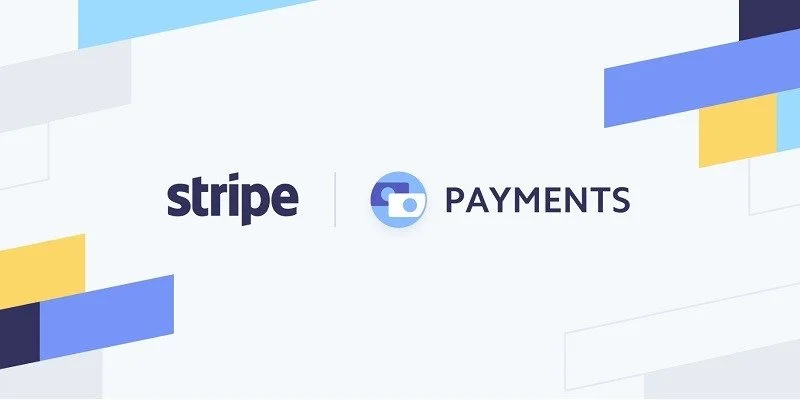Background
One of our clients recently asked us to review existing third-party payment processors, with an eye toward selecting one for integration with an existing web application we have developed for them. Here is a summary of our research.
Summary
We started our search by reviewing payment processors that support recurring payments, since that feature seems to be of critical importance to the overall solution. In other words, we don’t want a user to enter their credit card info every time that they purchase a service.
To that end, here are some online resources we reviewed:
Recurring payment online (Google Search)
Recurring Payments Systems Software - Review Leading Systems (All checks, but also rated and linked)
Chargebee, Maximize Recurring Payments With Chargebee (A layer above payment gateways; choose your own)
Recurly, Payment Gateway Designed for Recurring Billing (A layer above payment gateways; choose your own)
Chargify, Recurring Billing (A layer above payment gateways; choose your own)
The Best Recurring Payment Providers of 2021 (Digital.com)
Online Payment Processing for Recurring Payments (Quite descriptive)
Recurring online payment providers (Google Search)
Easiest & Cheapest Ways to Accept Recurring Payments in 2021
Here are some other resources we reviewed:
Enable Google Pay for Business, Website, and App - Google Pay (Love their audience awareness: "For Business, For Consumers, For Developers")
Payment system (Wikipedia)
E-commerce credit card payment system (Wikipedia)
Payment processor (Wikipedia)
List of online payment service providers (Wikipedia)
Category: Online payments (Wikipedia)
E-commerce payment system (Wikipedia)
Payment gateway (Wikipedia)
Comparison of payment systems (Wikipedia)
Payment Card Industry Data Security Standard (Wikipedia)
From these resources, we narrowed our search down to Stripe and Square.
Square versus Stripe
To compare these two, we primarily reviewed the following four side-by-side comparison articles. We suggest you at least skim them. #1 deserves a closer look.
FitSmallBusiness.com (By far the clearest/quickest read; respects your time)
All summaries are well-represented in FitSmallBusiness.com's words:
Square: Best for individuals, brick and mortar businesses, and basic online sales.
Stripe: Best for tech-savvy startups and growing e-commerce businesses, B2B, and international sales.
For the needs of the application we developed for our client, we recommend Stripe.
Other information
That said, other information we gathered follows.
Fees
Identical for online payments, but Stripe wins on recurring payments:
"Stripe’s recurring payment fees are far cheaper than Square’s" (https://fitsmallbusiness.com/square-vs-stripe/)
"Stripe also has far more robust options for businesses that need to take recurring payments" (https://www.merchantmaverick.com/stripe-vs-square/)
Ecommerce-Platforms.com agrees
Technical
"Stripe is made with developers foremost in mind" (https://www.merchantmaverick.com/stripe-vs-square/)
"Square has come a long way in developing its toolsets for programmers, but Stripe is at or close to the top of the list when it comes to do-it-yourself customizations” (https://www.merchantmaverick.com/stripe-vs-square/)
"There’s a lot of testimonials from users (especially developers) who like Stripe and find it simple to set up. There are plenty of others who disagree with that idea. I’m inclined to think most people with a decent technical backing will get along fine with Stripe, but for some people, especially those with less technical knowledge, it’s not going to be a good choice" (https://www.merchantmaverick.com/stripe-vs-square/)
On StackOverflow:
Searching "stripe checkout" yields 500 results
Searching "square web payments" yields 61 results
Origin
Stripe is from Ireland (dual HQs in Dublin and San Francisco), which may explain its international advantages
Square is US-based
Third-party vs Merchant account
For background, review third-party processing vs merchant Account processing. Square and Stripe are third-party payment processors. These are not:
PayPal is "a payment gateway and will require… your own merchant account" (https://www.fundera.com/blog/stripe-vs-square)
Contradicted here: (https://www.merchantmaverick.com/third-party-payment-processors/)
"Authorize.Net is not a merchant account provider" (https://www.fundera.com/blog/authorize-net-reviews)
Corroborated here: "Authorize.net requires a merchant account" (https://thedigitalmerchant.com/ecommerce/payment-processing/comparing-stripe-vs-authorize-net-better-payment-solution/)
One thing to keep in mind: "The potential for account holds or terminations is universal — you will encounter it with any third-party processor. If you want to avoid it, your only alternative is to seek out a traditional merchant account.” (https://www.merchantmaverick.com/stripe-vs-square/)
Sources
FitSmallBusiness.com (By far the clearest/quickest read; respects your time)
Other information we reviewed
Since we liked FitSmallBusiness.com reviews so much before, we went exclusively with their analysis below. All of their articles are beautifully structured, thus easy to skim. I encourage you to do so.
(A) From Best B2B Payment Solutions for Small Businesses:
"Stripe: Best overall B2B payment solution"
"PayPal: Best for small companies doing international business online and needing in-person credit card processing"
"PayPal accepts payments online with PayPal or credit cards and allows users to tie a bank account to their PayPal so that they can fund payments through it"
"Overall, we chose Stripe for versatility in features and payment types"
(B) From Stripe vs PayPal: Which Online Payment Processor Is Best?:
"Stripe: Best for tech-savvy startups and growing e-commerce businesses, B2B, and international sales"
"PayPal: Best for small or casual retailers and those that need an additional payment option"
Both include "card on file"
"Most Affordable: Stripe - Stripe's payment processing fees are overall less expensive and easier to understand. PayPal, on the other hand, has a long list of differing payments for varying situations, plus different fees for individual countries"
"Best for Payment Processing: Stripe - When looking at pure payment processing, we choose Stripe for its flexibility and breadth of payment types"
"Best for Sales: PayPal - Use Stripe if you want to create a custom online checkout solution"
"PayPal lets you create digital gift cards [and] set up store credit"
"Best for Integrations: Stripe - PayPal takes the lead for retail, with integrations in thousands of shopping and mobile applications, from eBay to Facebook. However, that’s from the consumer’s POV. Businesses will have a harder time finding integrations…"
"Use Stripe if you want to integrate … into your existing e-commerce or billing software, including CRM software like Salesforce. This is what Stripe is designed for"
"While PayPal is integrated into just about any retail application you can think of, Stripe takes the lead for integrations because of its app marketplace and developer tools"
"In the debate of PayPal vs Stripe, there is no clear winner"
"If you choose to go with Stripe, PayPal makes a good addition because it’s a trusted service, expands your payment processing capabilities, and has no additional fees if it’s not used regularly.
(C) From 11 Alternatives to PayPal for Small Businesses in 2021:
"Stripe: Best PayPal alternative for integrations"
"One of the selling points of PayPal is how easy it is to integrate into your online sales and programs. However, if you need even greater functionality, Stripe is the way to go. Its application programming interface (API) and software development kit (SDK) tools are top-notch and designed to give you a flexible payment processor"
"When comparing Stripe vs PayPal, Stripe’s in-person processing fee is higher, but the online fee is lower. Stripe also works in 35 countries and has a flat fee for that, as opposed to PayPal’s country-specific fees."
(D) From 8 Best Merchant Services for 2021:
"PayPal: Best for Occasional Sales"
"Stripe: Best Payment Processing for Online Businesses"
"PayPal is not a traditional merchant account. This means business accounts can be flagged and frozen if the company deems anything suspicious, which is problematic for businesses relying on daily deposits. So, PayPal is a top-recommended option for low-volume and occasional sales or an additional payment option for online stores"
"Stripe is a payment processor with sophisticated software and APIs ideal for online businesses and apps that want to create a custom checkout solution. Stripe’s pre-built integrations make it easy to connect a Stripe checkout to almost any website or software”
“One of the best features of Stripe is the number of different payment types it can work with. Accept ACH and e-check payments, WeChat, Klarna, Apple Pay, Google Pay, and more. Configure subscriptions, recurring billing, or one-time payments for different checkout needs (like per-seat pricing, metered billing, coupons, free trials, pro-rates, overages, and usage-based fees). And, automatically update expired or renewed customer card information”
“Stripe is an industry-leading payment solution used by startups and Fortune 500 companies. While it has competitive pricing for businesses of all sizes, you’ll get the most value out of Stripe if you have developer resources to configure and maintain a custom checkout"
(E) More:
Between Stripe and PayPal, we’d still pick Stripe.




